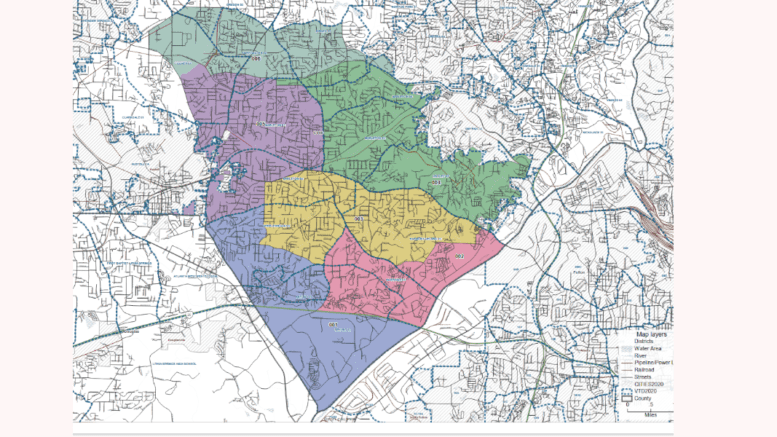By John A. Tures, Professor of Political Science, LaGrange College
The biggest story in Cobb County this month is….the Kennesaw State University Owls making the March Madness tournament and nearly pulling off an upset over heavily favored Xavier. But the City of Mableton March elections and subsequent drive for de-annexation isn’t too far behind. Will the winners be the de-annexers, supporters, or someone who wants accommodation between both groups? And can more incorporations in Cobb County be far behind?
Ever since the Democrats made big gains in the Cobb County Commission elections in historically Republican territory, those opposing such changes have sought ways to minimize these earth-shaking elections. Redrawing districts was one plan, while incorporating cities within Cobb County could deprive the increasingly blue region of a tax revenue.
Mableton was the only successful bid; failures for similar moves came in East Cobb, Lost Mountain and Vinings. East Cobb seems to mirror the GOP fears about county trends.
Of course, the state legislature has something to say, but after the Buckhead experience in their unsuccessful secession bid from Atlanta, there’s probably less enthusiasm to getting burned twice. It wasn’t just the unsuccessful Senate vote in the General Assembly. A poll commissioned by Emory professors showed that even Buckhead residents weren’t too enamored with having their own city, which may well have been a partial one in terms of service. In aggregate, it was almost a 3:1 margin against Buckhead cityhood, with even residents of that proposed area opposing becoming their own city by a 14-point margin.
Don’t get me wrong; incorporation is the trendy trend. According to the U.S. Census Bureau, early two-thirds of Americans live in cities, and in the last decade, that inclination for incorporation grew by almost 14 percent. It’s up in the South, though in Georgia, a fair number of the state choose to live in unincorporated areas, more than the Midwest and West.
Think the politics of annexation and incorporation are all about money? Think again. Analysis of annexations show it’s not always about finances. That’s at least what D. Andrew Austin concludes in “Politics vs. Economics: Evidence from Municipal Annexation.” Instead of tussling over tax bases, such encroachment cases were about the racial effects of urban migration. I’ve been told the move is more about politics and control, not race, but a scholar reminded me in debates over district drawing that political and racial gerrymandering are becoming increasingly blurred.
Few studies of empirical data on de-annexation exist. A notable exception is “Tiebout Revisited: Redrawing Jurisdictional Boundaries” by Steven Garasky and Donald R. Haurin. The authors conclude “The paradox of the study is that while the empirical results support this intertemporal considerations hypothesis, one can argue that the hypothesis itself is based on irrational behavior. High property value owning voters are hypothesized to support the de-annexation attempt in hope of being part of the next wave of de-annexers, but their support of the issue leaves them, at least immediately, with a larger fiscal deficit and reduces their likelihood of success in the future.”
These seemingly apparent paradoxes bleed over to the Mableton municipal contests which could decide whether annexers or de-annexers would win, and what they would do. It’s clear from the Buckhead case that convincing locals of the plan may matter more than trying to push so hard for a policy, when the people of that area aren’t necessarily on board with that plan.
John A. Tures is a professor of political science at LaGrange College in LaGrange, Georgia. His views are his own. He can be reached at jtures@lagrange.edu. His Twitter account is JohnTures2.
